Baidu Launches 'Xinxiang': Igniting the Battle for AI Agent Supremacy
![]() 04/27 2025
04/27 2025
![]() 661
661
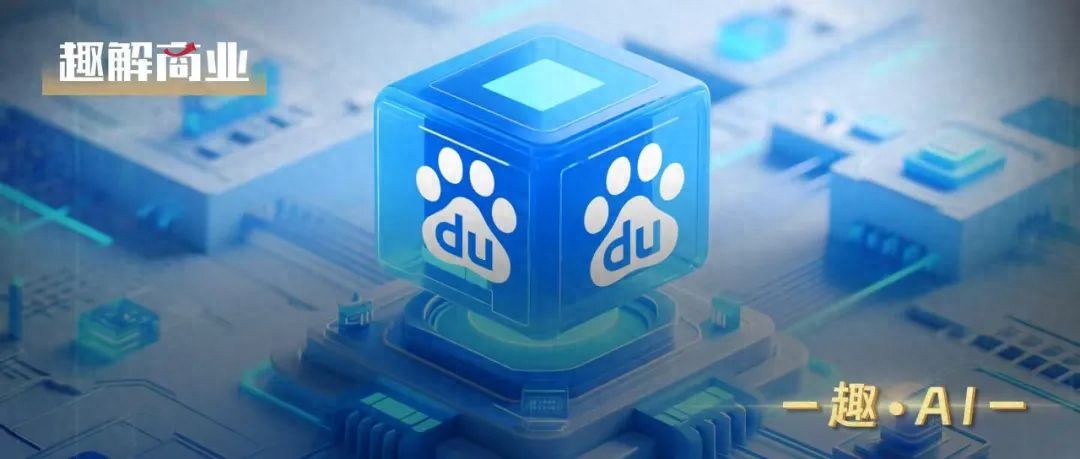
Baidu strikes again, entering the fray of general AI agents with a new heavyweight contender.
On April 25, at the Create2025 Baidu AI Developer Conference in Wuhan, Robin Li unveiled nine groundbreaking AI products and technologies. Among these, Baidu officially launched 'Xinxiang', a mobile general super agent app, with its Android version already available and the iOS version awaiting approval.
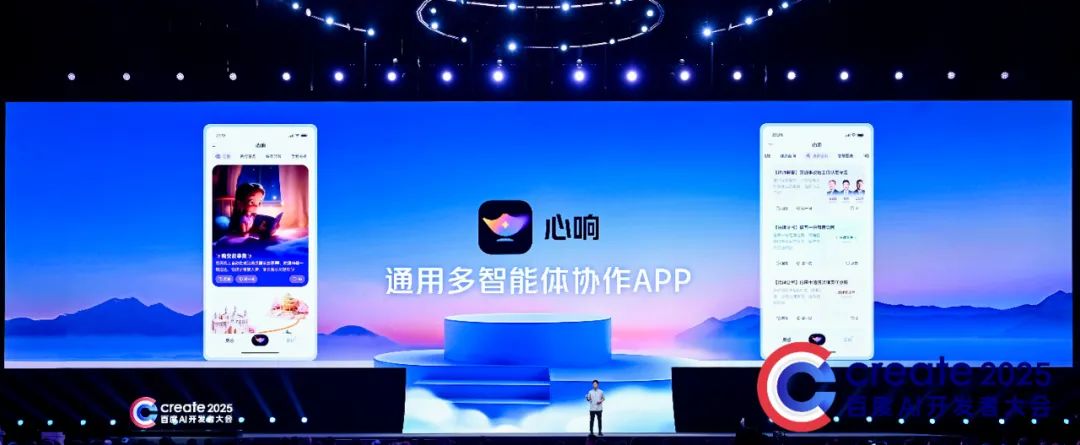
Image source: Weibo
Following Monica's Manus and ByteDance's Kouzi Space, Baidu's launch of 'Xinxiang' marks another significant move in the general AI agent sector. It not only showcases Baidu's Wenxin large model capabilities but also aims to reshape users' AI habits and secure a strategic platform.
With Baidu's move, more players are expected to join the fray soon. The competition among general AI agents will now shift from a technical showdown to a comprehensive battle encompassing product forms, user perception, and ecosystems. Will Baidu's 'Xinxiang' be the first to resonate with the market?
01. What is the 'Xinxiang' Experience Like?
According to Baidu, the Xinxiang app is a general super agent centered around an 'AI task completion engine', designed to address users' complex daily needs through intelligent means. Currently, it covers over 200 task types across ten scenarios, including knowledge analysis, travel planning, and learning and office work, with plans to expand to over 100,000 task types to meet users' diverse needs.
In terms of functionality, 'Xinxiang' goes beyond a simple collection of AI Q&A tools, aiming to create a full-process assistant for continuous dialogue. Users only need to describe their needs in natural language, and Xinxiang dissects the intention, calling relevant plugins to complete operations like route planning, hotel selection, and food recommendations based on the provided parameters, resulting in a highly executable travel guide.
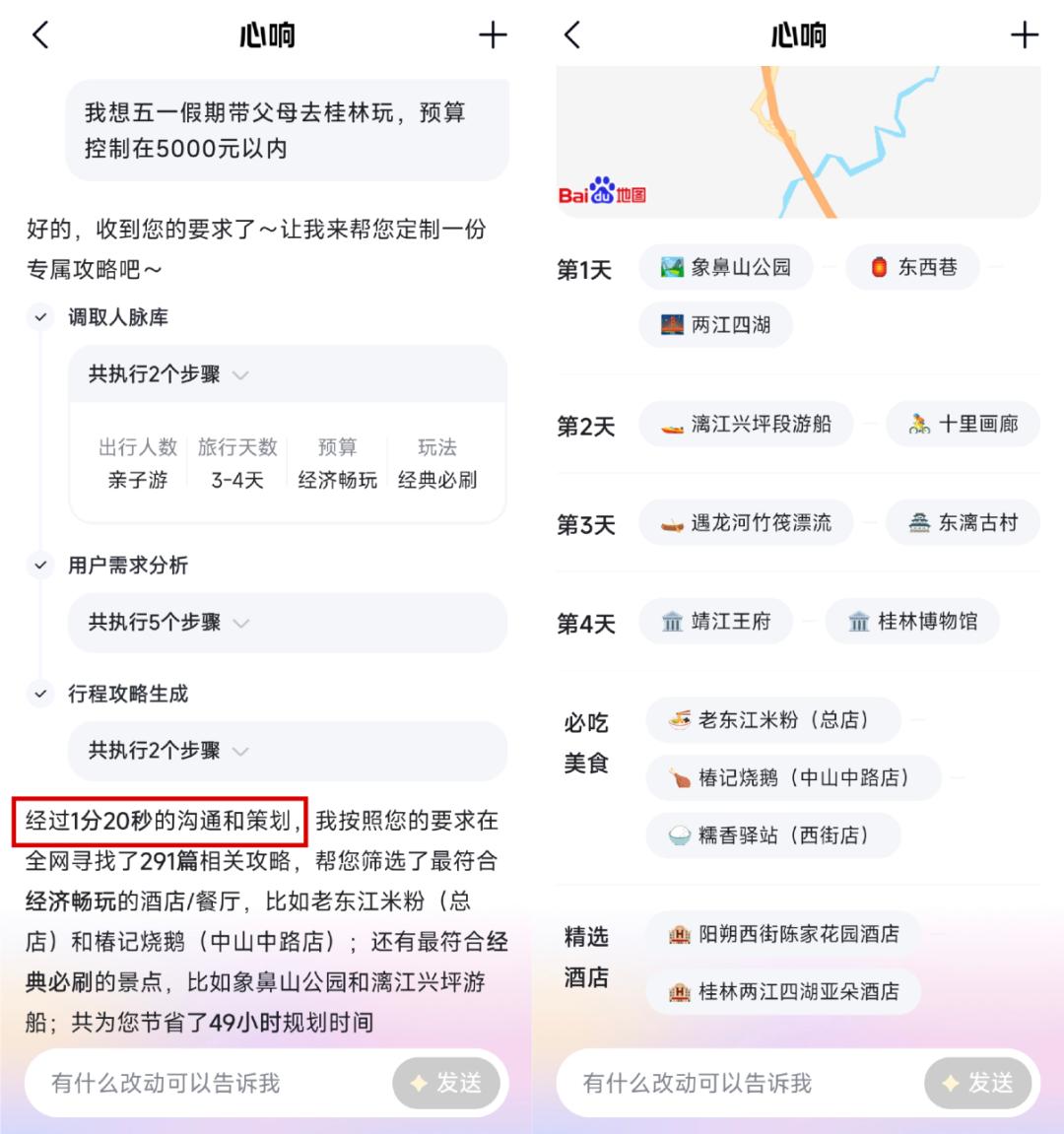
Image source: Xinxiang APP screenshot
However, from a user experience perspective, some netizens have noted a gap between Xinxiang and 'efficient and user-friendly' in terms of content generation time and completion.
Firstly, the content generation process is generally slow. In complex scenarios involving multi-dimensional information integration, users often have to wait tens of seconds or even over a minute for a barely usable result, weakening the immediacy of the experience.
Secondly, among the 200 task types currently covered, most functions rely on preset templates, lacking the dynamic generation and flexible invocation that define true intelligence. Many usage scenarios remain at the level of simple Q&A or automated form filling, far from the ideal form of completing complex task chains through natural language.
Some netizens speculate that to ease user onboarding, Xinxiang may have restricted MCP services, encapsulated workflows, and disallowed customization, affecting output results. This confines the agent within Baidu's defined task framework, lacking openness and scalability.

Image source: public account screenshot
Others have questioned whether Xinxiang is an 'API Frankenstein' reusing open-source core algorithms, sparking technical debates and risking rapid replication by the open-source community, threatening its technical uniqueness.
A deeper issue is that Baidu lacks an AI usage scenario that users are genuinely inclined to use daily. Although Xinxiang aims to occupy the 'general super agent' entry point, Baidu's user stickiness and scenario penetration on the C-end are relatively weak, lacking a native traffic platform for traction and retention. Some users lack a strong desire to stay after their initial try.
Compared to giants like ByteDance and Alibaba, which have robust content and service distribution networks, Baidu is weaker in C-end user touchpoints and developer ecosystems. Even if Xinxiang boasts excellent model capabilities and a promising product prototype, without attracting enough third-party service providers to form a 'plugin ecosystem', its agent's versatility and scalability will be limited.
02. The 'Chaos' of the Year of Agents
Undoubtedly, multi-agent collaboration is a crucial development direction for current AI applications. Future AI applications will evolve from simply answering questions to delivering complex tasks, achievable through multi-agent collaboration for needs analysis, task breakdown, resource scheduling, execution planning, and result delivery.
From this perspective, Baidu's attempt to use 'Xinxiang' to seize the first-mover advantage in general agents is a strategic move in line with technological trends. The product vision challenges the current fragmented and inefficient tool experience, heralding the transition of AI applications from 'toolbox' to 'executor'.
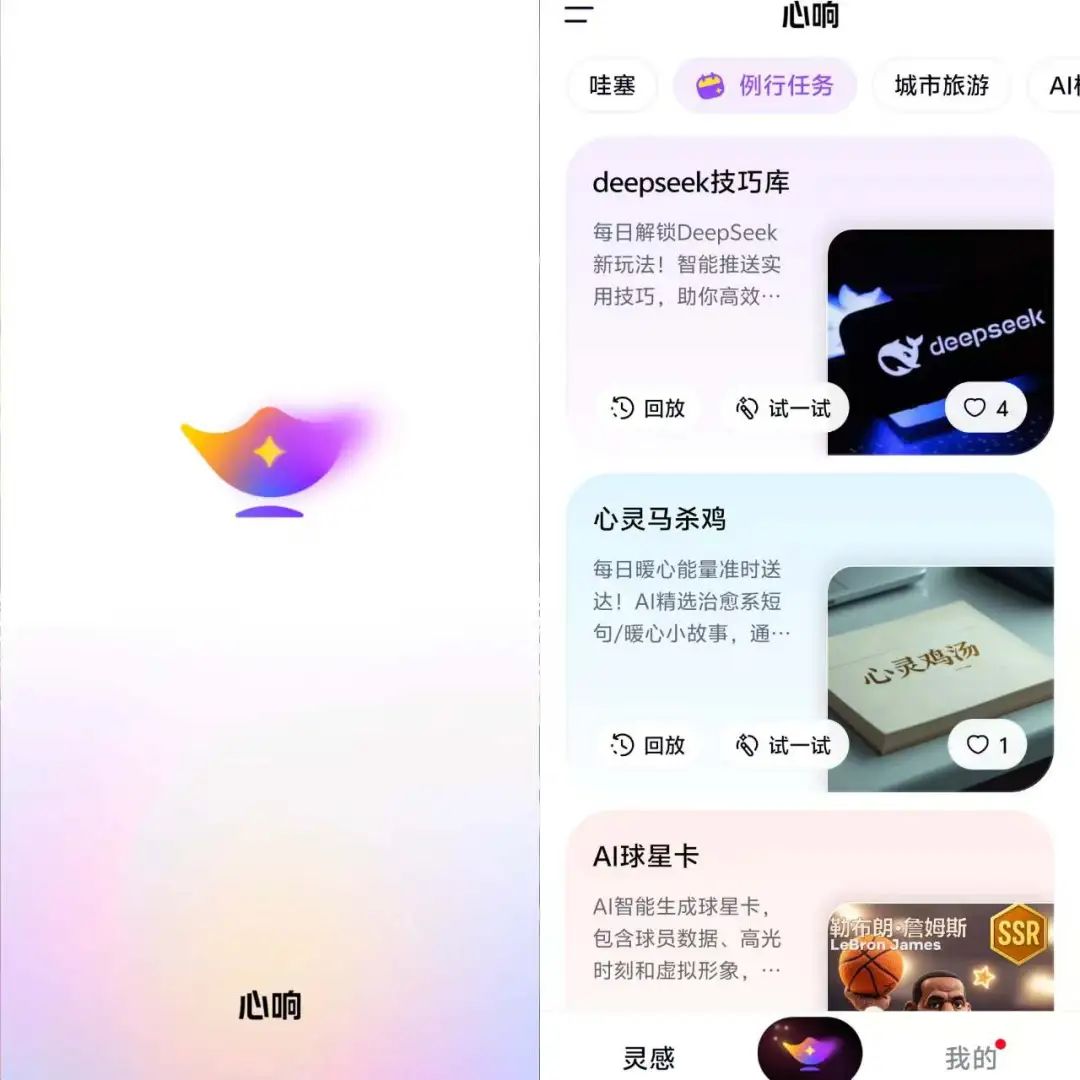
Image source: Xinxiang screenshot
However, despite being on the right path, Baidu often 'gets up early but arrives late'. As one of the earliest Chinese internet giants to bet on AI, Baidu has been at the forefront since establishing its Natural Language Processing Department in 2010.
Subsequently, Baidu established the AI Research Institute, AI Laboratory, and Deep Learning Research Institute, continuously increasing investment in the AI industry. In June 2016, at the Baidu Alliance Summit, Robin Li delivered a keynote speech titled 'The Next Act: Artificial Intelligence', formally establishing AI as Baidu's company-level strategy.
However, the rise of Deepseek later overshadowed Baidu's Wenxin large model. Under industry pressure, Baidu adjusted its strategy, canceling its chatbot subscription service and offering its model for free in an 'open-source' form. Will Baidu, a pioneer in multi-agent collaboration applications, break its 'concept leadership but product lag' cycle this time? Only time will tell.
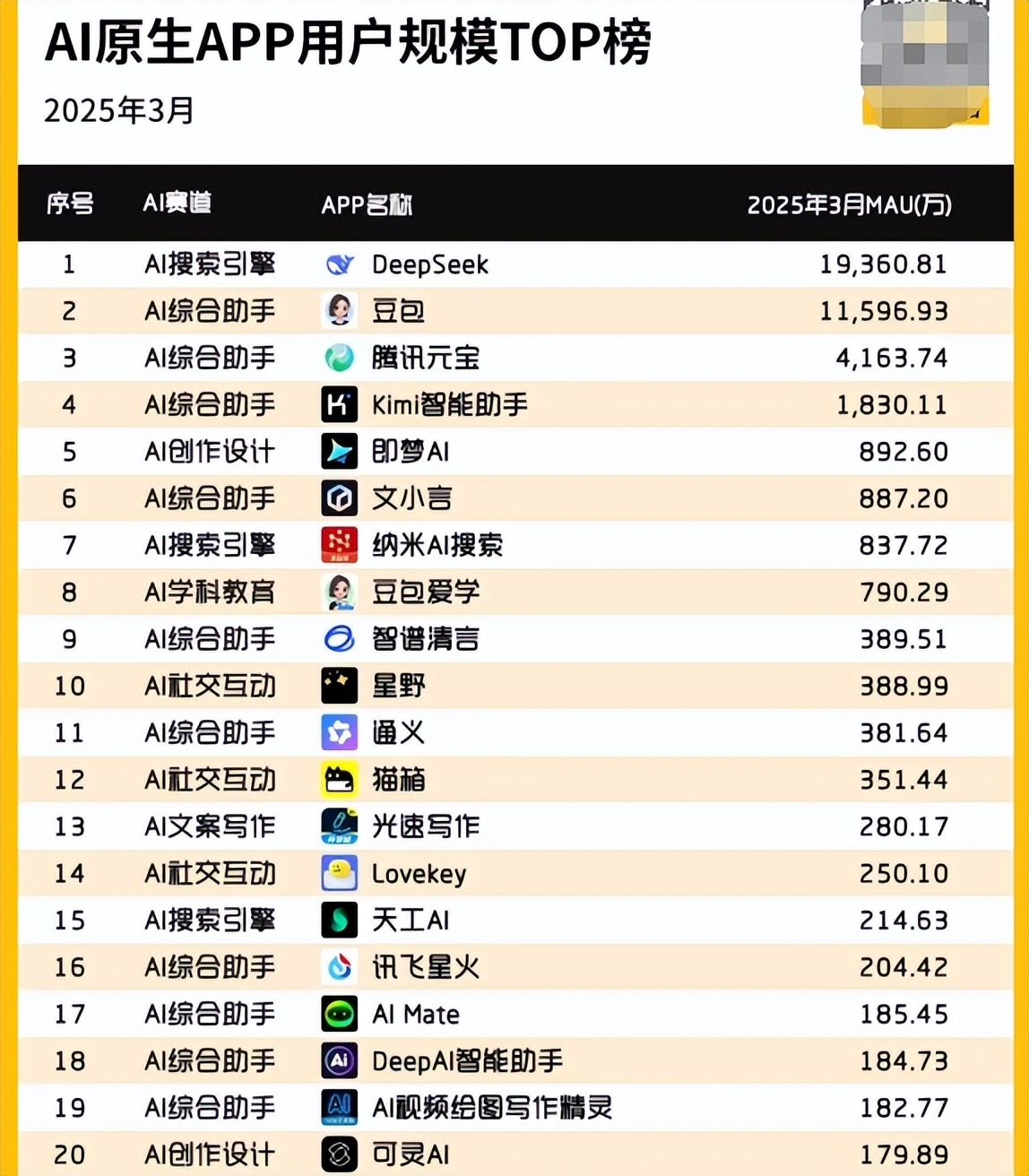
Image source: QuestMobile2025 screenshot
From 'Wenxin Yiyan' to 'Xinxiang', Baidu's strategic direction has always been on point, but translating advanced AI capabilities into user-friendly and reliable products seems challenging. This obstacle stems partly from Baidu's 'technology-oriented, product-complementing' approach, resulting in AI products with impressive feature lists but lacking refined user experiences. Additionally, its weak C-end ecosystem, lacking high-frequency traffic entry points like WeChat, Douyin, and Xiaohongshu, makes it difficult to provide natural scenario support for AI products.
Robin Li once predicted that '2025 could be the year of the AI agent explosion.' With Baidu's 'Xinxiang' joining the fray, the general AI agent sector is transitioning from 'startups testing the waters' to 'giants in chaos.' Now, 'Xinxiang' stands at a crossroads: it could either become Baidu's 'AI comeback' on the C-end or revisit the awkward situation of 'Wenxin Yiyan's early 'high heat but low retention.' To succeed, it must run through the usage chain, establish user stickiness, and ultimately become an integral part of users' daily lives.
For users, the number of collaborating AI agents is less important than whether the experience is truly faster, more accurate, and easier to use. Baidu needs to prove not how early 'Xinxiang' runs but whether it can run more stably and for longer, ultimately winning over users' daily routines.








